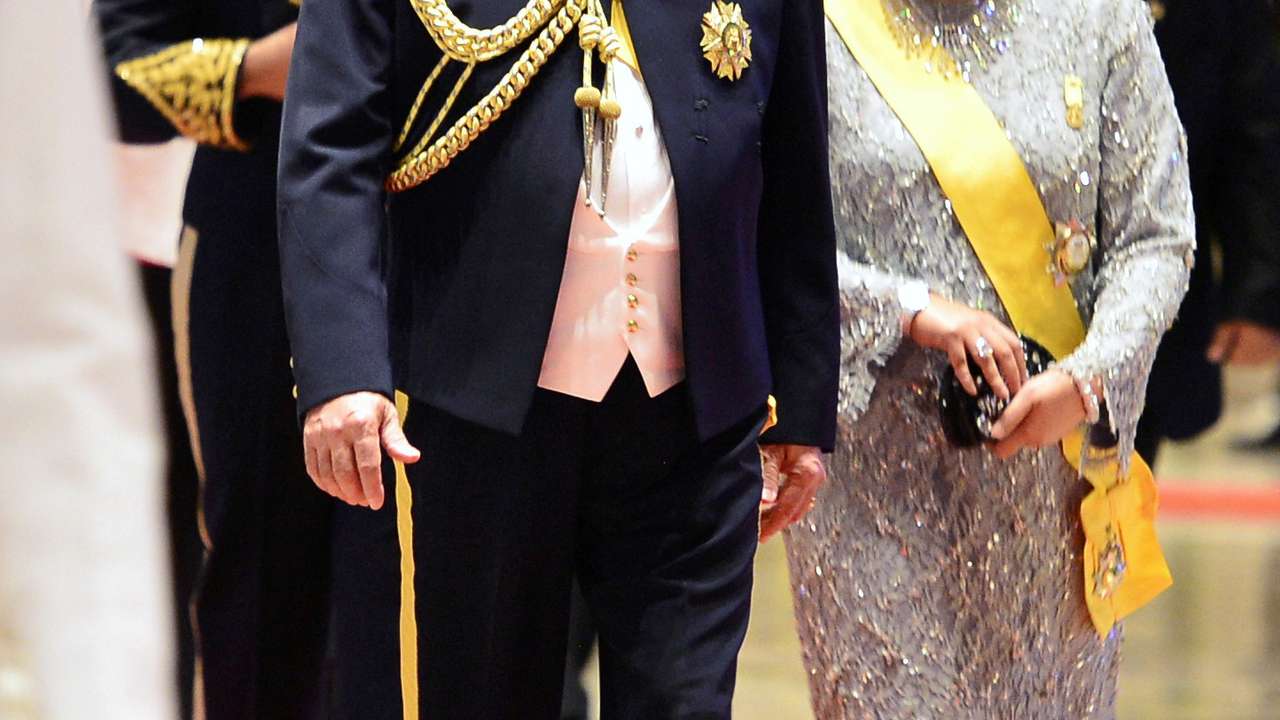Malaysia's unique rotational monarchy

The Southeast Asian country is a parliamentary democracy, with the monarch as head of the state and playing a largely ceremonial role.
But the monarchy has become more influential in recent years due to prolonged political instability during which the king has wielded rarely used discretionary powers.
HOW IS THE KING PICKED?
The heads of Malaysia's nine royal families, sultans of nine of its 13 states, take turns to be king for a five-year term.
After independence from British colonial rule in 1957, the order of rotation among the sultans was determined by seniority, based on how long they had been ruling. But that rule was dropped after all the royal families completed a term each.
They now take turns based on the initial order.
Nevertheless, they hold a secret vote but the ballot only has the name of the sultan whose turn it is. Each sultan is required to indicate whether they believe the nominee is suitable to be king. The candidate must get a simple majority to become king.
Once the result is announced, the ballot papers are destroyed in the presence of the sultans.
The new king will take over from King Al-Sultan Abdullah when his term expires in January.
WHAT ARE THE KING'S POWERS?
The monarch plays a largely ceremonial role and acts as custodian of Islam in the Muslim-majority country.
The federal constitution requires the monarch to act upon the advice of the prime minister and cabinet with only a few exceptions.
The king is allowed to appoint a prime minister who he believes has a parliamentary majority, a power never utilised until 2020 as the premier is typically picked through an election.
But a series of political shocks in recent years has forced the monarchy to play a greater role, with the incumbent king, Al-Sultan Abdullah, picking the last three prime ministers.
In 2020, when then prime minister Mahathir Mohamad resigned, the king met all 222 lawmakers to decide which of them could command a majority to form the next government. He appointed Muhyiddin Yassin as the premier after those meetings.
In 2021, when Muhyiddin lost his majority, the king picked Ismail Sabri Yaakob to be premier after a similar process.
He picked Anwar Ibrahim as prime minister in late 2022 when a general election resulted in a hung parliament.
The king also has the power to pardon convicted people. In 2018, the then-monarch pardoned Anwar, who was imprisoned on sodomy and corruption charges that he says were politically motivated.
Former prime minister Najib Razak, who was jailed last year after being convicted of graft linked to state fund 1MDB, has applied for a royal pardon. That request could be reviewed by the new king.
WHO IS GOING TO BE THE NEXT KING?
Based on the order, Sultan Ibrahim Sultan Iskandar, 64, from the southern state of Johor, is next in line to be the king.
Unlike other sultans, Sultan Ibrahim has been outspoken about politics, and has said he has a good relationship with the prime minister.
The sultan, who is known to have a big collection of luxury cars and motorbikes, has wide-ranging business interests from real estate to mining. A company he has a stake in has a joint venture with struggling Chinese property developer Country Garden to develop a $100 billion project called Forest City in Johor.
The sultan has publicly advocated setting up a special economic zone between Johor and neighbouring Singapore to strengthen ties.
This article was produced by Reuters news agency. It has not been edited by Global South World.